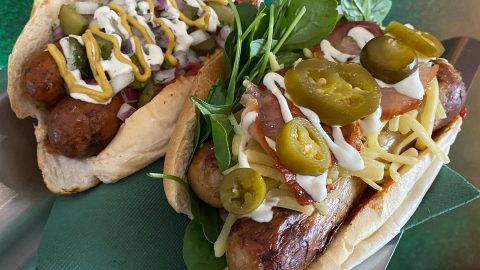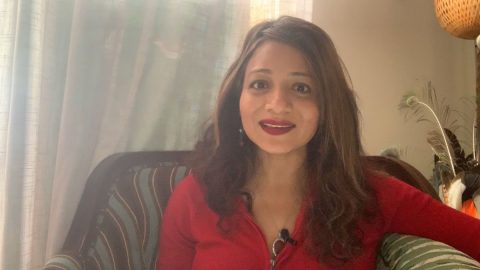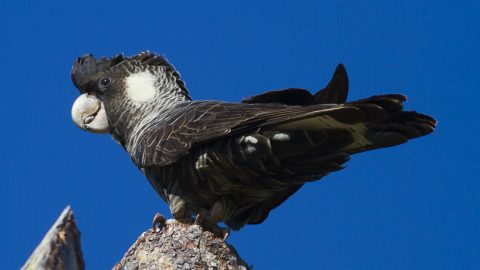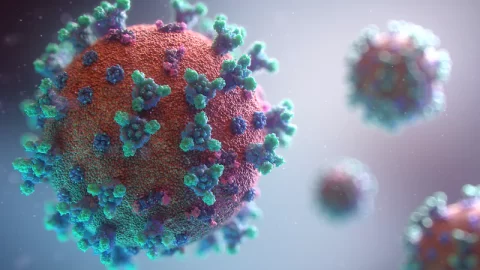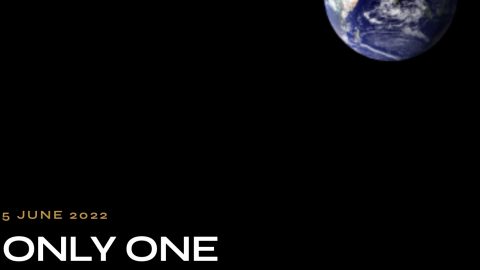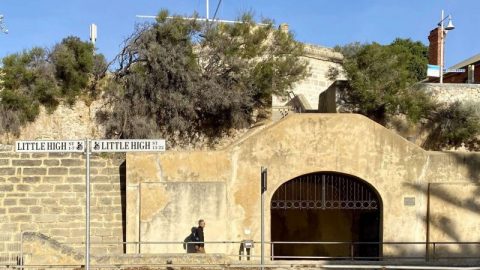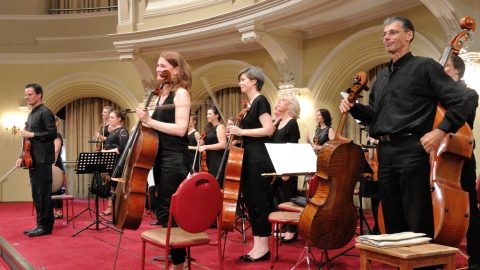Hi there, Ulrike! And thanks for chatting with Fremantle Shipping News.
A couple days ago a friend found this charming Facebook post in his feed and passed it on to me. ‘Interesting!’, he wrote. ‘Very!’, I replied.
As you know – because you posted it – the post reads –
A week ago I’ve reached South Fremantle – let’s say not in the best state of mind. What happened since then is quite impressive – at least for me.
Not only did I re-connect with a person whom I barely knew yet whom i considered as a “mind-like” to put it the least, I also found a place (South Fremantle) which very much reminds me of Mill Valley and parts of Sausalito in the early eighties, where I settled down back then. And I found a place where I just could be and enjoy the moment. What a priviledge.
The main beauty of this part of West Australia lays in its people. They aren’t main streamers, not brain washed or living iving for their own advantages,they hardly put the ME (=their own well-being and ego) over the WE. I sense this in my conversations on the beach, at the coffee houses and restaurants. It is easy to connect with people. They say hello to you in the streets and sit down at your table after a smile was exchanged – it’s good energy.
Many of them go deep in their thoughts and don’t rest on the surface. There is awareness instead of ignorance. This creates a very special vibe and a great quality of life. There seems to be quite some trust, lots of empathy and a fair share of disobedience. I always feel you need a certain kind of disobedience to create the right vibes. And this hods true today more than ever. If we all follow what we are told or pressured on by the community/societies we live in – we are doomed. It’s OK to step back on the individual level for the better of the community, isn’t it?
If we just follow the MORE, and MORE and MORE, and be greedy and ruthless because the others are, where will this end?
I love the individualism here.
And I love this freedom to choose.
And above all I love the fact that people enjoy this freedom.
And that they do choose.It’s really a place where I could settle down …
No matter how far away it is from anywhere.Ulrike Reinhard
Then I did my Google research and found out more about you, including from your Wikipedia entry that describes you as a ‘German publisher, author, digital nomad and futurist’ born in Heidelberg in 1960.
Before we go any further, Ulrike, do tell us where you have travelled over time as a digital nomad. Some of us have always wanted to be one and do that!
So go for it! Probably the only thing which is hindering you, is your fear 🙂
I know you’ll find all kind of excuses NOT to do it. Get over it – and do it. You will be surprised.
I am not saying it is easy.
What I can say though: for me it is absolutely rewarding.
I came to a point in life where it didn’t make any more sense for me to have a physical base.
The rent I paid including the obligations going along with a house, were more a burden than a benefit. So it was time for a change.
And I made the conscious decision to give up my place and start living without a “home”.
It felt right and I had no fears.
I emptied the house, I gave the things my son wanted to him. The rest I sold.
The only things in storage are 10.000 books.
The radical shift to become a “complete” nomad was in 2017.
I always travelled a lot – I’ve been to more than 120 countries in the world.
It was hardly ever a vacation when I left; I was always involved in projects or wanted to explore and better understand something specific, like Balouchistan. A state which belongs to three countries – the main part is in Pakistan, the north of Balouchistan in Afghanistan and the West is in Iran. Magnificent landscape, tough living conditions, home to many tribes and a hotbed for terrorism.
On my way I’ve built a reliable and very robust network of friends around the world.
I experienced different cultures and understood why there are sometimes legitimate diverging perspectives. I saw it with my own eyes – there was no filter in-between.
I created my own puzzle pieces of how I see the world.
I also found out a lot about myself.
I went out to go inward – a wonderful journey it has been.
I observed myself in these new environments.
I stepped back and saw myself acting in these areas.
It helped to sync who I am with what I do.
And I overcame fears – such as not being afraid where to spend the night or how to reach a remote area or not having network access.
It basically helped me to be me.
Being yourself is the richest gift in life – I feel.
It enables you to embrace the abundance out there and in you,
you can give back and receive even more in return and you do what YOU want.
What more in life do you want?
The tricky question, I know: How do I finance being a nomad?
Giving up my house has cut down my fixed costs to almost zero.
All I need is a phone and a laptop.
There is no one back home writing cheques. I don’t have regular income.
I have no savings. I don’t own property. And I don’t get a pension.
I live hand to mouth.
What helps me – and this is my main learning of this new lifestyle so to speak – is TRUST.
I’ve trust that there is a way laid out for me.
And most of the time I’ve stopped listening to the voices in my head which are telling me something else.
When I am in sync with myself, then things work out.
I always get a job when money is needed.
And very often these are wonderful and exciting jobs.
Giving talks. Holding workshop or writing articles about change.
Jobs that enrich my life further.
Ulrike, I’m also fascinated to learn how you found your way to Fremantle and then discovered South Freo? Have you visited us before? Please tell all!
No, I was never at Australia’s west coast before. I’ve been to Sydney and Melbourne twice, but never made it out here. What brought me to South Fremantle was a string of short messages and within ten minutes it was clear I’d come. Here is what happened.
I was in Bangkok waiting for a dear friend, close to my heart, to come. He never came. He died in a car accident two days before he was supposed to leave. That threw me off course. I felt lost and desperate in this huge concrete jungle – even though I was with friends. I knew I had to go into nature to heal. And this is when Australia came into my mind. I wrote a message to a friend in South Fremantle, Trish Bygott, she runs a beautiful shop on Wray Ave. I’ve met her eight years ago in India and within no time it was clear that my next destination would be South Fremantle. I bought a super cheap air ticket and off I went.
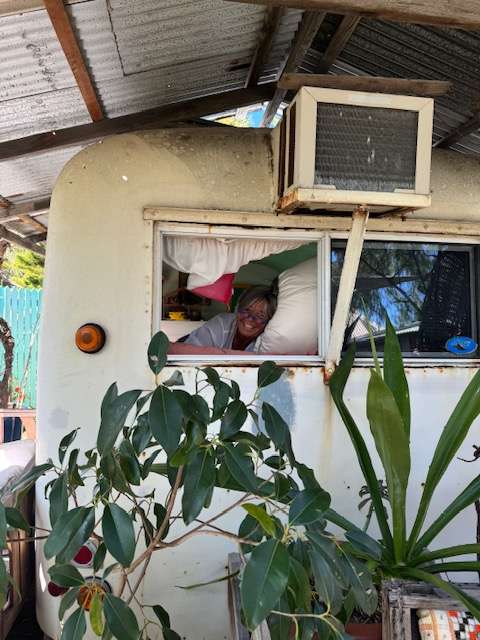
The minute I arrived at Trish’s, my healing started. It was her humbleness, vulnerability and open-heartedness and the profound vibes of her little courtyard which made me feel at “home” immediately. In the courtyard there is a bus transformed into a “studio”, which is my place to stay. I am very grateful for that and I am fully aware that this is something very special what happened. It is not something you can plan – it’s rather something the universe is holding for you.
It’s quite a story, isn’t it?
It is. It really is. Ulrike, I see that in your 20s you spent time in Sausalito, San Francisco. What was it that took you there? Was that one of your first adventures?
Yeah, I lived in Sausalito from 1985-1994. I was married to a man from Austria who lived in this beautiful part of Marin County. Unfortunately he died in 1994 – maybe otherwise I would still be there. Who knows?
I had this flower power image of San Francisco in my head, going there was a childhood dream. So when I’d finished my PhD (it was in economics back in the early 80s, a comparison of how product placement and sponsoring is used in German, US and Italian TV), I took off for one year. Then after I’d look for a job. That was the idea.
I flew to New York to visit my aunt and explore the US. I criss-crossed the continent in triple A cars. My second tour brought me to San Francisco. I reached my dream town in a dark red 9000 Saab convertible. And I made sure that I entered the city via the Golden Gate Bridge. What a feeling this was! Epic.
I stayed at a school friend’s place in Haight-Ashbury. We used to play basketball together. One day I went over to Sausalito, passed Mount Tamalpais and reached Muir Beach. I walked to its far end and thought that this last part was private. I asked the man who was sun bathing naked on top of a rock, if this beach was private. And he said with an inviting move of his arm: “It is all yours!”
That was the man whom I married a year later.
And I only came back home and started my own business eight years later.
Another of these stories … !
In Sausalito I was introduced to The Well. The very first online community.
They had their office right below where we lived. I went there frequently.
And had my first email account with them in 1987.
The Well and its people, actually very similar back then to South Fremantle, sparked my interest in the decentralised structures of the Internet. And the power this could hold.
This had a deep impact on all my work.
Along the way, Ulrike, you seem to have developed a passion for freedom, long before being a digital nomad was a thing. Where did this passion come from? Were you born with it?
I know we are all born with a deep sense of freedom.
It just develops in different people in different directions as we grow older.
I was born into a lower middle class family.
We didn’t have much. Yet my parents gave me the freedom to let me do what I wanted to do.
My only restrictions were financial restrictions.
What ever I did, I had to work for it. Invest time for it. Which was a good thing.
That was their greatest gift to me –
and trust me, when I was young I didn’t always see it that way 🙂
The freedom to create.
The freedom to explore.
The freedom to respect.
The freedom to learn.
The freedom to travel.
The freedom to give without taking.
The freedom to (let) grow.
The freedom to let go.
The freedom to make your own choices.
The freedom to be part of this wonderful nature and world surrounding us.
Too many of us take these things for granted.
We need to cherish them. These are the pillars for a free life and democracy.
We need to raise awareness of how important they are.
I was lucky to have met people from all walks of life who showed me this.
And what they taught me over the years is, that only when you have freedom in yourself, then you can provide freedom to others.
And at the end of the day, I believe, this is what we are here for.
India obviously inspired you along the way. And as I then discovered, you are very well known to many folk because of the skatepark you created there in Janwaar, Madhya Pradesh. Can you tell our readers just how that came about? Amazing. Had you done anything like that before then?
Yeah, the skatepark in Janwaar. Another beautiful story.
The story goes in one sentence: A skatepark has changed an entire village in rural Madhya Pradesh. You will find a lot of stuff on the Internet about it, just google my name and/or the Barefoot Skateboarders if you are interested. There are books, documentaries, short films and even a Netflix movie. Quite astonishing for such a small project.
Until I started the project I had nothing to do with skateboarding.
But I was always interested in how to drive change.
This is how I earned my money as a freelance consultant.
Helping organisations to drive change.
So when I got the opportunity to “do good” in this part of India,
I thought I’d use skateboarding as a driver/trigger for change.
I created a clash of two cultures.
On one side skateboarding.
Which stands for being against the main stream.
Finding your own way, being disobedient.
Giving the feeling to fly.
On the other side a very conventional Indian village.
Left alone and behind. Deeply separated by caste.
Frozen in ancient traditions. Standstill.
No opportunities. No choices.
Yet tremendously beautiful and peaceful.

I thought when I bring these two things together, something will happen.
So I built a skatepark with skateboarders from around the world and the locals.
We didn’t fence it. We kept it completely open. And invited everyone to join.
Two rules were in place:
Girls first! – To give the girls who have no rights in this part of the world the chance to participate.
No school, no skateboarding – which swamped the kids into the school. School attendance went up by 40%!
The rest is history 🙂
Many initiatives/projects came out of the clash.
Today the village is socially, culturally and economically better off than before.
The skatepark has given this village an identity. Something the villagers are proud of.
It brought them together and empowered especially the children to take their lives in their own hands. We created many projects TOGETHER. That was the beauty of it.
I created WITH the people. Listen to them and merged their knowledge with mine on the issues.
It wasn’t created FOR the people. The village people had a voice.
Unlike in way too many other “charity” projects.
Ulrike, how is the skatepark doing all these years later? Did Covid affect things like it did so many others?
I had to leave India when Covid hit and after that India rejected my visa three times.
So the skatepark and the entire project took a turn. Until then I played a significant role.
Now it is the kids, who have their own NGO, the Barefoot Skateboarders Organisation, and run the show. They do it in their own way. And this is a good thing. I help them once in a while, but that’s it. The network is still there and ready to support and they will move on. It is good to see.

BTW only the other day, on September 17, 2024, a children’s book about the project was published – it is called The Barefoot Skateboarders and is available in Australia – unfortunately only at a very high price (it was first published in Canada and the US).
Ulrike, back to the here and now, and South Freo, where I live, I am in the habit of describing South Freo to others as ‘slightly dishevelled’, a state of being not everyone seeks to be in but I find is good for one’s physical and mental health! What is it about the area that caught your eye? Obviously, going back to your recent Facebook post, something struck a chord with your deeper senses?
It was less the eye than the feeling. I described the minute I arrived above.
And then walking around in South Fremantle I sensed individualism, counter-culture, creativity and a healthy touch of disobedience. NOT mainstream.
It’s rare. And it needs to be cherished.
I feel and have experienced that the people here put the WE over the ME.
They don’t chase the MORE, MORE, MORE at any costs.
They share and contribute to the community. I like that.
And yes, this goes along with a certain kind of uncertainty –
so your description suits perfectly.
I feel this is what the world needs most.
And I am always happy and very comfortable when I am in a place like this.
Are your travel plans set years ahead, Ulrike, or do you go with the wind? And where will you travel next?
Usually I go with the wind. Yet some travels are fixed, for example when I get work or when family events happen. So from here I will fly to Delhi for a few days to do some workshops and then I go home for my father’s 90th birthday. After that I don’t know. I might stay for a bit in Berlin.
Do you think we will see you in Freo again? Hope so!
I’ve the strong feeling that I will be back.
I need to meet you 🙂
It is a good place to live.
I’d go as so far and say: It is a place where I could settle.
~~~~~~~~~~~~~~~~~~~~~~~~~~~~~
* If you’d like to COMMENT on this or any of our stories, don’t hesitate to email our Editor.
** WHILE YOU’RE HERE –
PLEASE HELP US TO GROW FREMANTLE SHIPPING NEWS
FSN is a reader-supported, volunteer-assisted online magazine all about Fremantle. Thanks for helping to keep FSN keeping on!
*** Don’t forget to SUBSCRIBE to receive your free copy of The Weekly Edition of the Shipping News each Friday!
****AND Shipees, here’s how to ORDER YOUR FSN MERCH. Fabulous Tees with great options now available!
